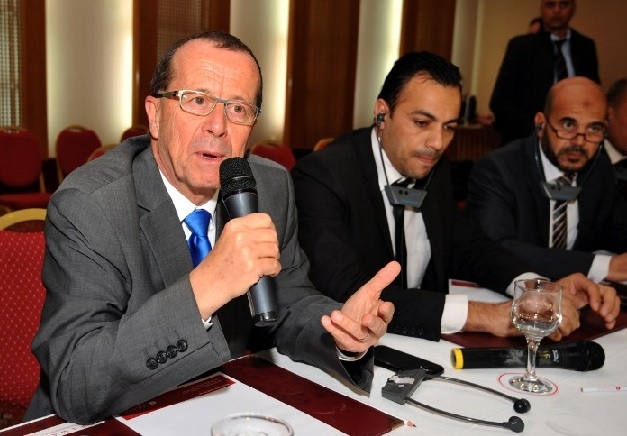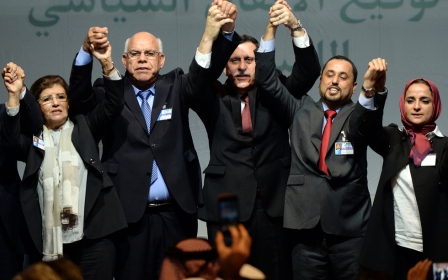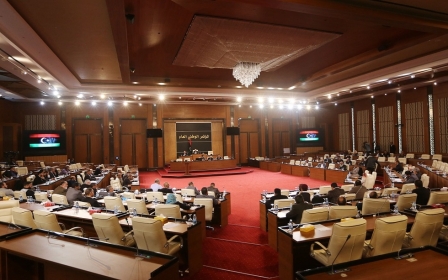UN Security Council backs Libya unity accord

The United Nations Security Council voted on Wednesday to endorse an agreement between rival Libyan political factions to form a government of national unity.
The 15-nation body gave its support to the deal signed last week in the Moroccan town of Skhirat between representatives of strife-torn Libya's two competing governments.
Britain's ambassador to the United Nations, Matthew Rycroft, presented the motion and dubbed it "a strong collective sign of our commitment to Libya's sovereignty, territorial integrity and national unity".
"But it is only the start of a process," he warned.
Earlier this week, leaders of 24 Libyan municipalities signed the UN-sponsored agreement on the formation of a national unity government, in a move welcomed by UN envoy Martin Kobler.
"I'm very happy there are 24 signatures of the Libyan political agreement by mayors. This is a good sign," Kobler told reporters after a meeting at Gammarth in Tunisia.
He also said that, "People need clean water and need electricity and a strong government can deliver this. That's why I asked the mayors to go back to their municipalities and to tell their people to support the agreement in order to have electricity, to have water, to have functional hospitals and schools.
Libya has been in chaos since the 2011 uprising that toppled the late Libyan leader Muammar Gaddafi, with armed factions battling for territory and control of its oil wealth.
The internationally recognised government was expelled from Tripoli in August 2014 and is based in the east of the country, while another body holds the capital.
On 17 December, under UN guidance, envoys from both sides and a number of independent political figures signed a deal to unify the government.
Around 80 of 188 lawmakers from Libya's internationally recognised parliament and 50 of 136 members of the rival Tripoli-based General National Congress signed the deal.
It calls for a 17-member government, headed by businessman Fayez el-Sarraj as premier, based in the Libyan capital.
A presidential council would also serve for a transitional period of two years until legislative elections.
Kobler is now working on arrangements to allow the unity government to safely set up shop in Tripoli, which is under the control of rebel fighters.
The unity deal does not include the Islamic State (IS) group, which is gaining strength in Libya and has seized a pocket of territory around Gaddafi’s hometown of Sirte.
International officials expect the new government, once installed, to have the authority to request international assistance - perhaps even military intervention - to subdue the threat.
New MEE newsletter: Jerusalem Dispatch
Sign up to get the latest insights and analysis on Israel-Palestine, alongside Turkey Unpacked and other MEE newsletters
Middle East Eye delivers independent and unrivalled coverage and analysis of the Middle East, North Africa and beyond. To learn more about republishing this content and the associated fees, please fill out this form. More about MEE can be found here.



